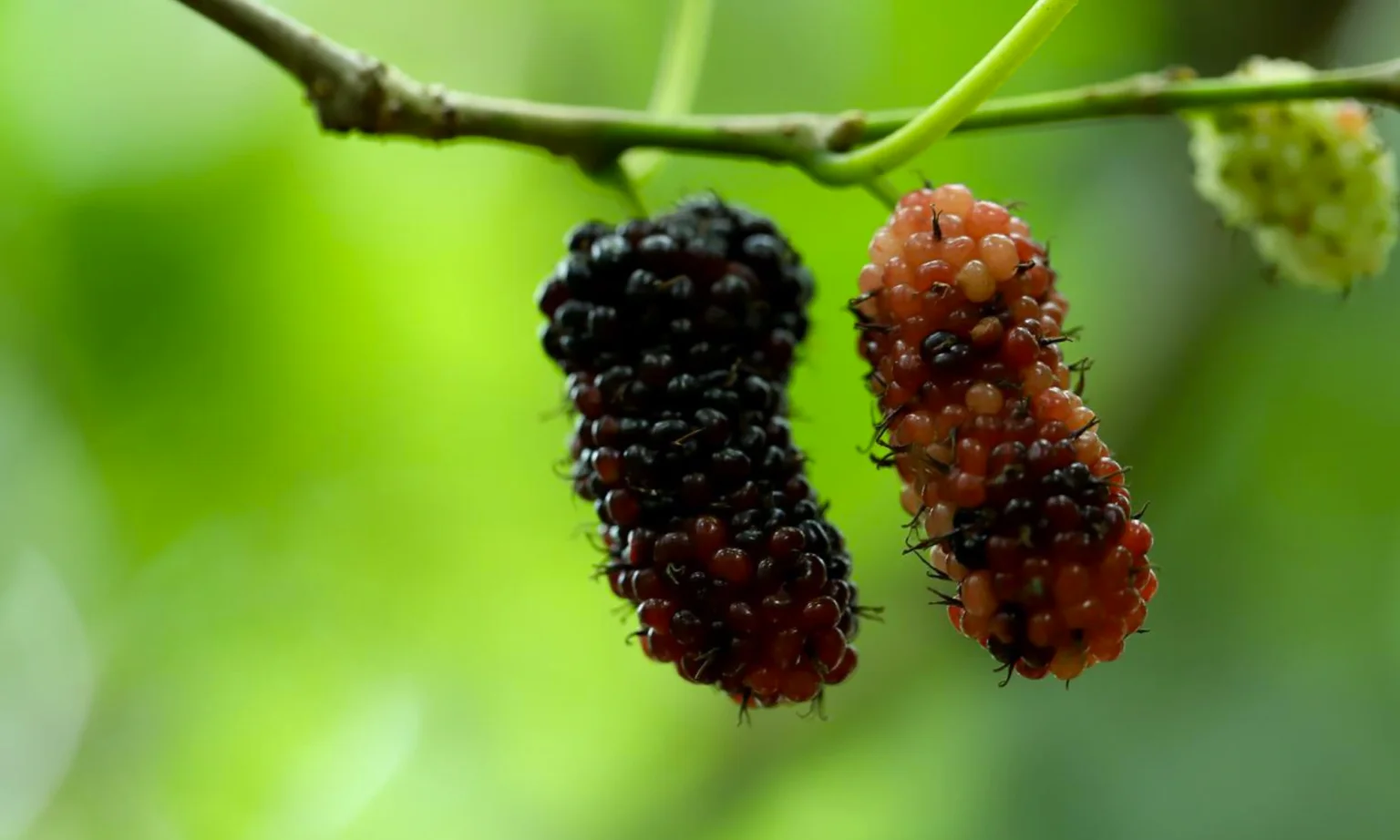Introduction:
Mulberry, a marvel of nature, boasts a plethora of benefits utilized in numerous applications today. From its diverse varieties to its medicinal properties, mulberry is a must-have in every household. Let’s delve into the world of mulberries and uncover their extraordinary properties and versatile uses.
Varieties of Mulberries:
In our country, we encounter white, black, and red mulberries. With fruits resembling raspberries, the mulberry tree is often referred to as the “arboreal raspberry.” Mulberry trees were historically planted along roadsides, with their fruits dried and ground into powder for use as an artificial sweetener.
Miraculous Properties of Mulberries:
Mulberry fruits are rich in organic acids such as citric and malic acid, along with an array of vitamins including C, B, K, A, and E, as well as essential minerals like potassium, magnesium, manganese, and iron. Beyond the fruits, experts claim that the bark and leaves of the mulberry tree possess anti-aging properties and aid in various health conditions.
Black Mulberry for Infections and More:
Black mulberries exhibit a broad spectrum of healing properties. They are utilized in treating urinary tract infections, respiratory and throat ailments, epilepsy, vertigo, insomnia, depression, and more. The juice aids in coughs, excessive urination, and sweating, while also effectively treating gum ulcers. Unripe fruits combat diarrhea, while ripe ones relieve constipation.
White Mulberry in Cosmetics:
White mulberry finds its application primarily in cosmetics. It’s a common ingredient in skin-whitening and pigment spot removal products due to its melanin synthesis inhibitors. Many eye creams contain white mulberry to tone and cleanse the skin, offering effects similar to black mulberry in treating various conditions.
Mulberry Bark for a Healthier Gut:
Mulberry bark serves as an excellent remedy against intestinal parasites and aids in gastrointestinal health. It’s beneficial in cases of food poisoning, whether from alcohol or mushrooms. The bark powder is also used externally for wound healing.
Versatility of Mulberries:
Mulberries are advantageous as both fresh and dried fruits, offering versatile consumption options. They contribute positively to health when incorporated into various culinary and medicinal preparations.
Tea from Mulberry Leaves for Diabetics:
For diabetics, mulberry leaf tea can be a boon. Approximately 50 grams of mulberry leaves steeped in half a liter of boiling water for ten minutes, then strained, can be consumed throughout the day to help manage blood sugar levels.
Mulberry Syrup for Throat Inflammation and Fever:
A syrup made from black mulberries, prepared by soaking the berries in water and apple cider vinegar for 24 hours, then simmering with brown sugar until desired thickness, serves as an effective remedy for throat inflammation and fever.
Cautionary Note:
While mulberries offer myriad health benefits, moderation is key. Excessive consumption may lead to hallucinations or digestive issues, potentially outweighing the benefits. Hence, it’s essential to consume mulberries in moderation for optimal health benefits.
Grandma’s Varicose Vein Remedy:
Grandma swore by mulberry leaves in the Alps for external applications like varicose veins and swollen legs. Her recipe involved steeping fresh mulberry leaves in alcohol in a dark place for two weeks, then straining and storing the tincture in a dark container for future use.
Conclusion:
The mulberry, with its enchanting varieties and miraculous properties, stands as a testament to nature’s bounty. Whether consumed as fruit, brewed into tea, or applied topically, mulberries offer a plethora of health benefits. Embrace the touch of mulberry in your daily routine and let your health flourish.

